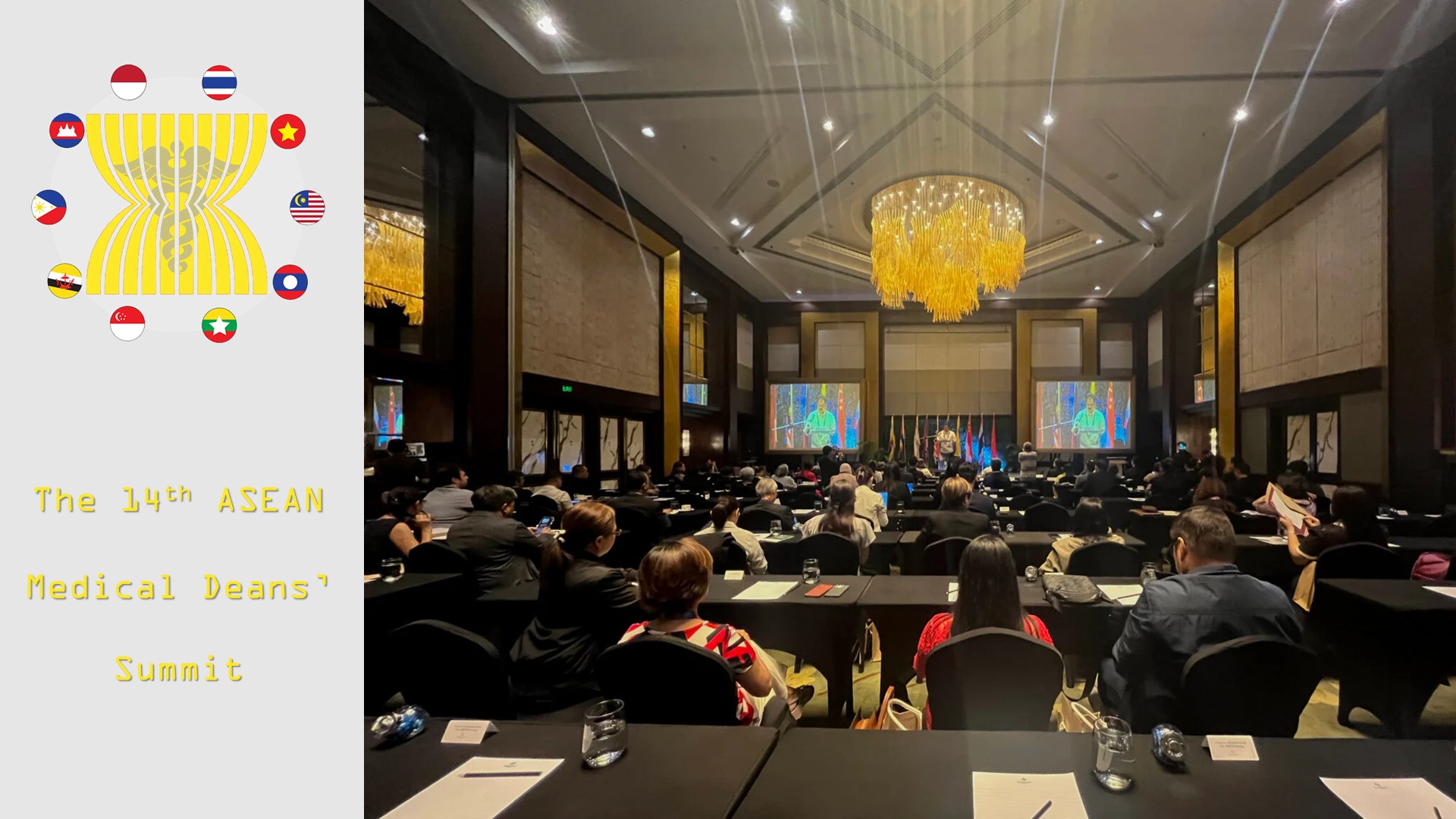The 14th ASEAN Medical Deans’ Summit (AMDS), hosted by the University of the Philippines College of Medicine, convened on June 12th – 14th, 2024, under the theme “Revolutionizing Medical Education for the Next Generation.” This pivotal event provided a platform for medical educators and administrators from across the ASEAN region to discuss innovative strategies and best practices in medical education.
Opening Ceremonies and Plenary Sessions
The summit commenced with welcome remarks from esteemed dignitaries, followed by a series of plenary sessions addressing critical areas in medical education.



- Plenary 1: Strategies in Simulation-based Medical Education explored the use of cutting-edge simulation technologies to create immersive training environments for medical students. Experts from the Philippines, Thailand, and Indonesia shared successful case studies and valuable insights.
- Plenary 2: Recruitment, Retention and Revitalization of Faculty focused on strategies to attract, retain, and support a robust faculty body. Participants from the Philippines, Vietnam, and Malaysia exchanged experiences and explored frameworks for fostering a nurturing and development-oriented faculty culture.
- Plenary 3: Evaluation Strategies and Controversies examined various assessment tools and methodologies for ensuring the competence of medical graduates. Representatives from the Philippines, Thailand, and Indonesia discussed the strengths, limitations, and potential for integrating these tools into existing curricula.
- Plenary 4: Social Accountability of Medical Education emphasized the responsibility of medical schools to address the health needs of their communities. Experts from the Philippines, Indonesia, and Singapore offered insightful perspectives on aligning educational objectives with societal health priorities and the impact of medical education on issues like global warming.
Interactive Workshops and Focused Discussions
The summit facilitated interactive workshops where members of the ASEAN Medical School Network (AMSN) engaged in discussions on the core themes of the conference. These discussions centered on:
- Simulation-Based Medical Education: Further exploration of innovative approaches and best practices.
- Faculty Development: Sharing experiences and best practices for faculty recruitment, retention, and development.
- Evaluation Tools: Examining the integration of various assessment tools and methodologies into existing curricula.
- Social Accountability Evaluation: Developing frameworks to evaluate the social accountability of medical schools and ensure alignment with societal health needs.
- Adapting Digital Technology: Integrating digital tools and platforms into teaching and learning, addressing both benefits and challenges.
- Next Generation Challenges: Adapting teaching methods to the unique learning styles and expectations of Generation Z medical students.
- Curriculum Harmonization: Efforts to ensure consistency and quality across ASEAN medical education programs while respecting regional and cultural differences.
- Research Collaboration: Fostering collaboration between ASEAN medical schools to advance medical knowledge and improve healthcare outcomes.





The workshops concluded with a summation highlighting the valuable presentations and discussions that will enhance AMSN member institutions. Closing remarks emphasized the importance of continued collaboration and knowledge exchange in driving innovation and excellence in medical education.
Concurrent ASEAN Medical School Network Student Chapter Forum
Complementing the AMDS, the 10th AMSN Student Chapter Forum provided a platform for students from across ASEAN countries to engage under the theme “Advancing Medical Practice Through Integrated Collaboration and Progressive Learning.” Key sessions included:
- Promoting Collaboration by Transcending Professional Silos: Emphasizing the importance of interdisciplinary collaboration in medical practice and exploring ways to foster teamwork among healthcare professionals.
- Enhancing Clinical Learning Through Digital Technology: Focusing on innovative ways to incorporate digital tools into clinical training.
- Achieving Team Culture by Challenging Hierarchy: Exploring strategies for creating inclusive and collaborative team environments by challenging traditional hierarchical structures.
- Presentation on Action Plans: Providing a platform for students to showcase innovative ideas and projects developed during the forum, aimed at advancing medical education and practice.
These sessions fostered knowledge sharing, collaboration, and progressive learning among future healthcare leaders in the ASEAN region.
A Significant Milestone
The 14th AMDS and 10th AMSN Student Chapter Forum served as a significant milestone in the ongoing pursuit of revolutionizing medical education for the next generation. By bringing together educators, administrators, and students from across ASEAN, the summit and forum facilitated the exchange of knowledge, best practices, and innovative solutions. The collective discussions and activities highlighted the shared commitment to excellence in medical education and the collaborative effort to address the evolving challenges in healthcare. As participants returned to their institutions, they carried with them new insights, ideas, and connections that will shape the future of medical education in their respective countries.










 Published
Published